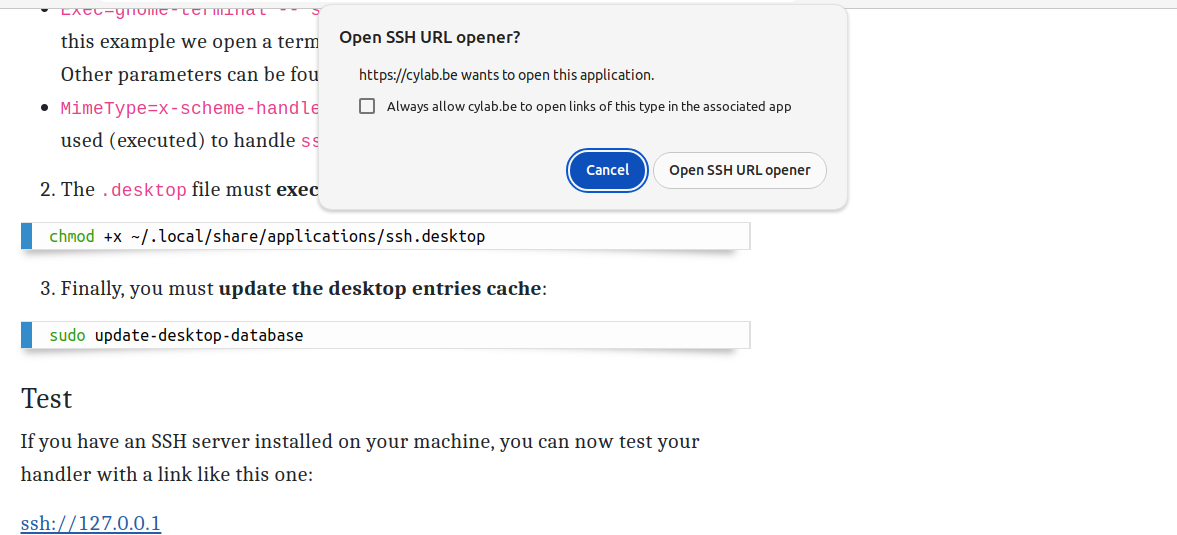Create a handler for opening special URLs like 'ssh://'
Jan 11, 2024 by Thibault Debatty | 2030 views
https://cylab.be/blog/318/create-a-handler-for-opening-special-urls-like-ssh
Sometimes when using a web application you may encounter a special URL that does not start with http or https, like ssh://192.168.0.123 for example. On a mobile device, your phone will usually open the appropriate application to handle this URL. Here is how to achieve the same on a Linux computer.
.desktop file
- Create a
.desktopfile in/usr/share/applications/, for example/usr/share/applications/ssh.desktop, with the following content:
[Desktop Entry]
Version=1.0
Type=Application
Name=Open SSH URL
Comment=Open ssh://... URL
Terminal=true
Exec=gnome-terminal -- ssh %u
Icon=utilities-terminal
MimeType=x-scheme-handler/ssh;
Most lines are self-explanatory. The two import lines are:
Exec=gnome-terminal -- ssh %uthat shows the command to execute. In this example we open a terminal to execute ssh, and%uis the actual URL. Other parameters can be found on the desktop entry reference pageMimeType=x-scheme-handler/ssh;that states that this entry should be used (executed) to handlessh://URLs
- The
.desktopfile must executable:
sudo chmod +x /usr/share/applications/ssh.desktop
- Finally, you must update the desktop entries cache:
sudo update-desktop-database
Test
If you have an SSH server installed on your machine, you can now test your handler with a link like this one:
This blog post is licensed under
CC BY-SA 4.0



